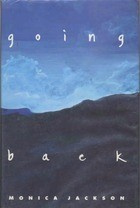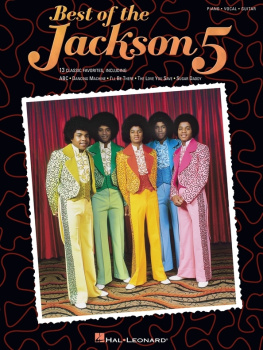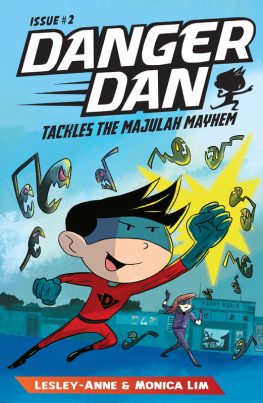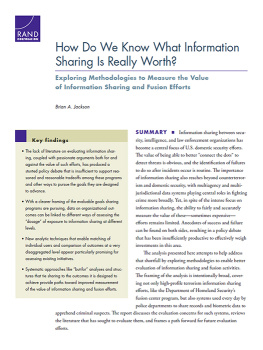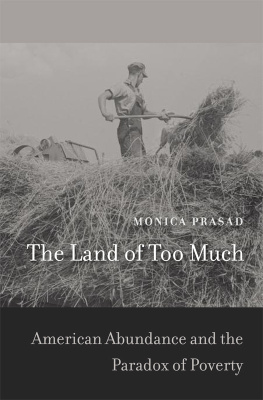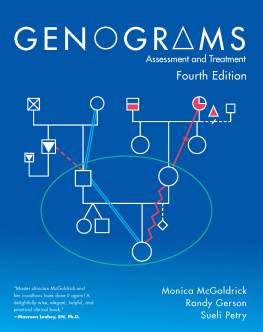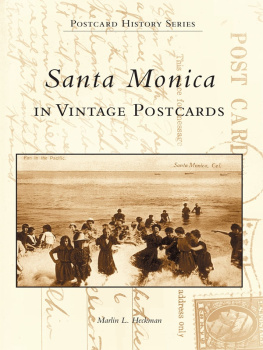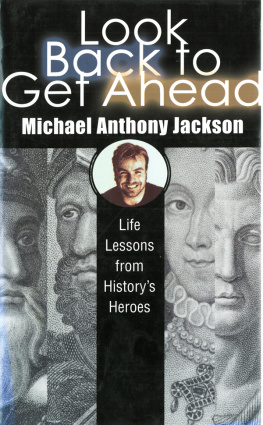Monica Jackson - Going Back
Here you can read online Monica Jackson - Going Back full text of the book (entire story) in english for free. Download pdf and epub, get meaning, cover and reviews about this ebook. year: 1994, publisher: Banyan Books, genre: Science. Description of the work, (preface) as well as reviews are available. Best literature library LitArk.com created for fans of good reading and offers a wide selection of genres:
Romance novel
Science fiction
Adventure
Detective
Science
History
Home and family
Prose
Art
Politics
Computer
Non-fiction
Religion
Business
Children
Humor
Choose a favorite category and find really read worthwhile books. Enjoy immersion in the world of imagination, feel the emotions of the characters or learn something new for yourself, make an fascinating discovery.
- Book:Going Back
- Author:
- Publisher:Banyan Books
- Genre:
- Year:1994
- Rating:5 / 5
- Favourites:Add to favourites
- Your mark:
- 100
- 1
- 2
- 3
- 4
- 5
Going Back: summary, description and annotation
We offer to read an annotation, description, summary or preface (depends on what the author of the book "Going Back" wrote himself). If you haven't found the necessary information about the book — write in the comments, we will try to find it.
Going Back — read online for free the complete book (whole text) full work
Below is the text of the book, divided by pages. System saving the place of the last page read, allows you to conveniently read the book "Going Back" online for free, without having to search again every time where you left off. Put a bookmark, and you can go to the page where you finished reading at any time.
Font size:
Interval:
Bookmark:
to my grandchildren:
Laura, Jessica, and Matthew
I should like to acknowledge with unending gratitude the help given me in the preparation of this manuscript by my beloved husband, Bob.
This book is about what it was like to grow up in a well-loved place, to be exiled from it for twenty years, and then to revisit it in the role of an allegedly unbiased observer.
I was born and brought up in the south Indian hills. My parents and grandparents were coffee planters, and the plantation of Honnametti on the Biligirirangan range was my territorial base until I was over thirty. Although my husband and I lived in other parts of India after our marriage, Honnametti remained our refuge until we left India in 1953, and our children were the fourth generation of my family to think of it as home.
When our childrens education was completed, it was time to make good the ragged gaps in my own. I graduated from Cambridge at the age of fifty with a first degree in archaeology and anthropology, and then went on to take an M.Phil. in social anthropology and a PhD. in demographic anthropology at the University of Edinburgh. It made sense to do the fieldwork for these studies in a region with which I was familiar, and it was therefore undertaken in a taluk of Mysore district in the state of Karnataka. The taluk contains and is bounded by the Biligirirangan hills, which are relatively easy of access from its administrative and market town, which is also a railhead.
My previous links with the area provided a foundation of background information which mercifully eased that first sticky period when I wondered what on earth I was doing there and what on earth to do next. Not only was I furnished with a ready-made entre into the local social networks but also with a unique opportunity to observe the effects of social change over the past quarter-century. To put it another way, my chief qualification for doing research in that particular part of the world was a matter of nurture.
My second research project arose out of my earlier study of caste and kinship in the area. It was a population study which sought to determine the effects of caste cultures on fertility. This meant going beyond the traditional methods of participant observation employed by generations of anthropologists and carrying out a questionnaire survey. My early reservations, based on a general distrust of the questionnaire form as a clumsy method of obtaining information, faded as I began to realise that many of the respondents regarded the interviews as a rare opportunity to air their views and pour out their domestic grievances to unbiased but sympathetic listeners.
This was especially true of the women. What they had to say confirmed my growing conviction that all the efforts of Indias family planning campaign would fail to solve its population problem unless a radical improvement in the status of Indias women gave them the self-confidence and independence they need to gain and retain control over their own fertility.
Between 1974 and 1981 I lived in Kollepet for varying periods of time, once for a year and never for less than four months. Apart from an initial sojourn with a typical high-caste Hindu joint family in the taluk town, I lived in a mud-walled and palm-thatched shack on the fringe of a mixed-caste village which I will call Lokkanhalli. The room-with-verandah which I rented there was my operational centre for nearly eight years. Along with its other advantages, it was a base from which I could visit and re-visit my dear wild uplands.
Malinowskis classic injunction to anthropologists to come down from the verandah is hardly applicable, taken at face value, to south India, where every hut, however humble, has its verandah as a focus of activity. Living alone and cooking for myself on the cow-dunged floor of my own verandah, I received a constant stream of visitors of both sexes and all ages, castes and classes. Nor was participant observation by any means neglected. On the contrary, it was omnipresent and unavoidable, and there were times when I could have done without it. Wherever I went, shopping, working, visiting peoples houses or other villages, going to the temple, attending ceremonies, travelling on buses, I was involved subjectively as well as observing (I hope) objectively. Furthermore, I was in turn observed, discussed and no doubt classified. But it was not long before I was also accepted as an interesting cuckoo in the taluks cultural nest.
The goodwill earned by my parents which, twenty years on, led to this tolerance of my presence was summed up on one occasion by a pillar of Kollepet society in a welcoming address. We will not call her a visitor. She belongs here and is one of us. It was a generous compliment but, conscious as I was of the honour and advantages of being offered, so to speak, the freedom of Kollepet taluk, I was often aware of the advantages of not in fact belonging there, and of the positive value for an anthropologist of this ambiguous position. On the one hand people were able to place me. On the other, as a well-disposed stranger with no local axe to grind, I was regarded as an ideal recipient of gossip and grumble, anecdote and shrewd comment, which afforded me many an insight into the usages of caste and class and the way in which individuals manipulated traditional codes and concepts as best they could to suit their personal requirements. One thing which always struck me in the days when I laboured studiously through the approved ethnographic monographs was the effortless way in which the authors managed to converse with the locals, apparently without the help of interpreters. How could I ever compete with my meagre store of residual Kannada, I wondered anxiously, when I realised I was committed to Kollepet. The surprising discovery of an academic lady from Karnataka in Edinburgh led to language lessons with her.
But you cant say it like that, she exclaimed in dismay as I dredged up forgotten phrases. Its incorrect. What she really meant was that it was uncouth. Armed, therefore, with a few carefully memorised flowers of refined speech, I tried them on my first hosts in Kollepet. They fell about with mirth. You can't say it like that, they cried. Only poets and pandits talk like that. I tried them on the villagers. We only speak Kannada, they replied. In the end I found that my original Kannada patois slowly came back and was understood perfectly by the villagers, who talked that way anyhow. In time a compromise was also effected with the more educated, although their Indian English, even in its pidgin form, was always a good deal more fluent than my laborious efforts at polite Kannada diction. In short, although I learned to grasp the gist of even good Kannada, I mostly spoke Indian English with the more educated unless I had a companion to interpret. But I got along fine with my peasant friends in their own language. I would like to stress here that the following chapters are meant to be illustrative of my experiences rather than exhaustive. Finding the task of distilling the experiences of many years quite beyond me, I have chosen to present a series of remembered incidents in the form of flashbacks to portray my familys life in India in the past. For the rest I have taken from my diaries a representative five days or so in village and town, and a few weeks in the hills, to exemplify the kind of ongoing drama (to lapse into jargon) in which I was involved in the course of my research, plus my personal reactions to living in the village and to revisiting my old haunts in the hills.
It remains to me now to acknowledge a few debts to those with whom I have latterly had dealings in India.
Font size:
Interval:
Bookmark:
Similar books «Going Back»
Look at similar books to Going Back. We have selected literature similar in name and meaning in the hope of providing readers with more options to find new, interesting, not yet read works.
Discussion, reviews of the book Going Back and just readers' own opinions. Leave your comments, write what you think about the work, its meaning or the main characters. Specify what exactly you liked and what you didn't like, and why you think so.

